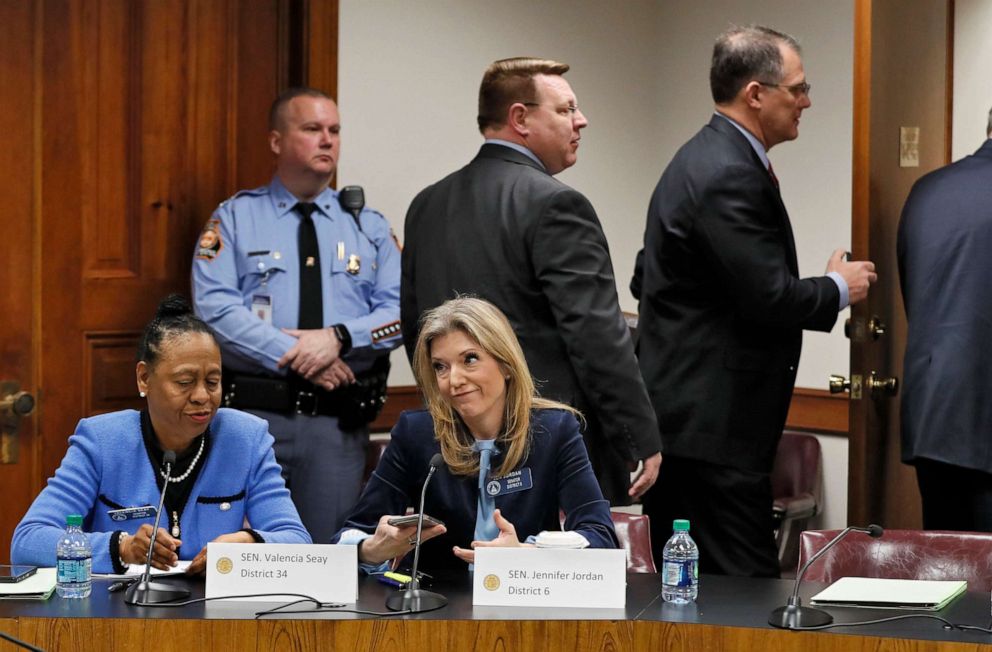The expected vote on a so-called “heartbeat” abortion ban in Georgia is just one of a growing number of abortion restrictions that may become law this year.
In fact, more than 250 bills restricting abortion have been filed in 41 states since the start of 2019, according to a new report issued by the Planned Parenthood Federation of America and Guttmacher Institute, a reproductive rights research group initially formed under Planned Parenthood that has been operating separately for years.
While some legislators have been working to restrict abortion access since the landmark Roe v. Wade Supreme Court case that codified the right to abortion in 1973, the rate at which restrictive laws have been filed in recent years has picked up.
Specifically, there has been an increase in the number of so-called “heartbeat” bans, where abortions are banned after six weeks of pregnancy. Opponents of these bills point out that in some cases, women may not know they are pregnant by six weeks, and therefore are unable to obtain an abortion before such laws ban them.
Between 2011 and the end of 2018, two states — North Dakota and Iowa — signed six-week abortion bans into law, but in the first three months of 2019, an additional two states — Kentucky and Mississippi — have already signed similar bills into law according to Elizabeth Nash, the senior state issues manager at the Guttmacher Institute.

Abortion rights groups routinely challenge these more extreme restricting laws, and both North Dakota and Iowa’s six-week bans were struck down so neither went into effect. Kentucky and Mississippi’s new laws have both already faced legal challenges, and neither has taken effect.
While no six-week ban has actually gone into effect, abortion advocates claim lawmakers push for “radical abortion bans” as “part of a deliberate strategy” to get legal challenges that could take an abortion case to the Supreme Court, as Nash said on a conference call with reporters Wednesday.
Ultimately, Nash claimed, that is part of an effort to “undermine or even overturn Roe.”
Beyond the push to elevate the issue to the Supreme Court, states are taking other steps to potentially criminalize abortion. The report says six states — Arkansas, Georgia, Kentucky, Missouri, Tennessee and Texas — have approved so-called “trigger bans,” which would ban abortion in the state if Roe is overturned by the Supreme Court.
“The surge in attempts to ban abortion in the earliest stages of pregnancy drives home that the end goal of anti-abortion politicians and activists is to ban all abortion — at any point during pregnancy and for any reason,” Nash said in a press release along with the report.
The latest push in Georgia is facing a growing choir of opponents as it moves through the state’s legislative process.
The measure, House Bill 481, passed one vote on March 22, with a vote of 34 in favor and 18 against, and now it proceeds to another House vote, which, if passed, then sends the bill to the governor’s desk. That vote is likely to happen on Thursday.
One potentially unexpected group that came out against the bill is the Writers Guild of America East and West, which released a statement condemning the “draconian anti-choice measure.” The guild said if passed, “this law would make Georgia an inhospitable place for those in the film and television industry to work, including our members.”
Georgia became a popular state for television and movies to film with a 2008 state tax credit that would award a 30 percent tax break to productions filming in the Peach State. Deadline cites the Motion Picture Association of America as saying the film and television industry is responsible for more than 92,100 jobs and $4.6 billion in wages in the state.
“The cost would be most deeply felt by the residents of Georgia — including those who directly work in the film and television industry, and those who benefit from the many millions of dollars it pours into the local economy,” the statement reads.
The bill is also facing opposition from some conservative groups, like Georgia Right To Life, which believes the bill doesn’t go far enough because it allows exceptions for cases that include rape and incest and where a pregnancy is deemed medically futile, as in the child is not predicted to live to birth or only shortly thereafter. Genevieve Wilson, a director at Georgia Right To Life, told ABC News they view those exceptions as discriminatory.
“We are very sad that it also denies equal justice and equal protection for some classes of children in the womb. Equal protection and equal justice are the bedrock of the American Constitution and our laws. This is a very dangerous step when we create classes of human being that are not protected under the law,” Wilson said.
Source: Read Full Article